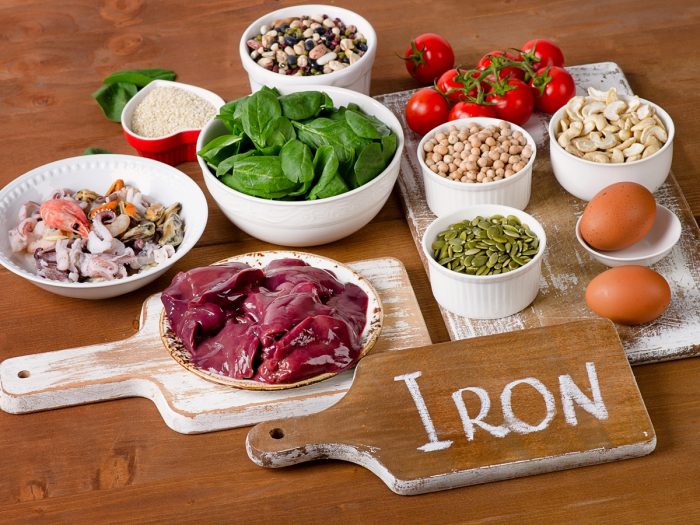- Empty cart.
- Continue Shopping
The Importance of Iron for Overall Health

Iron, a vital mineral, plays a significant role in maintaining overall health and well-being. It’s an essential component of hemoglobin, the protein in red blood cells responsible for transporting oxygen from the lungs to various tissues and organs in the body.
The Role of Iron in the Body
Iron is involved in several critical physiological processes that are essential for our health and vitality:
1. Oxygen Transport
As mentioned earlier, the primary role of iron is to bind with oxygen and transport it throughout the body. This is vital for energy production and the proper functioning of cells, tissues, and organs.
2. Energy Production
Iron is a key component of enzymes involved in energy production. It helps in the metabolism of carbohydrates, fats, and proteins, turning them into usable energy for the body.
3. Immune Function
Iron is crucial for a healthy immune system. It supports the production of white blood cells, which play a central role in defending the body against infections and illnesses.
4. Cognitive Function
Adequate iron levels are essential for proper cognitive function. Iron deficiency can lead to cognitive impairment, affecting memory and concentration.
5. Growth and Development
Iron is particularly important during periods of rapid growth, such as childhood and pregnancy. It is necessary for the development of healthy cells and tissues.
Iron Deficiency
Insufficient iron intake or poor absorption can lead to iron deficiency, which is a common nutritional problem worldwide. Iron deficiency can have a range of negative effects on health:
1. Anemia
The most well-known consequence of iron deficiency is anemia. Anemia occurs when there is a shortage of red blood cells or a decrease in hemoglobin levels, leading to fatigue, weakness, pale skin, and shortness of breath.
2. Impaired Cognitive Function
Iron deficiency can affect cognitive function, particularly in children and adolescents. It can lead to difficulties in concentration, learning, and memory.
3. Weakened Immune System
A lack of iron can weaken the immune system, making the body more susceptible to infections.
4. Fatigue and Weakness
Iron-deficient individuals often experience persistent fatigue and weakness, making it challenging to carry out daily activities.
5. Pale Skin and Brittle Nails
Iron deficiency can manifest in physical symptoms such as pale skin, brittle nails, and cold extremities.
Iron Overload
While iron deficiency is a prevalent concern, excess iron in the body can also be harmful. Iron overload, known as hemochromatosis, can lead to various health issues:
1. Organ Damage
Excess iron is stored in various organs, including the liver, heart, and pancreas. Over time, this can lead to organ damage and dysfunction.
2. Increased Risk of Chronic Diseases
Iron overload has been associated with an increased risk of chronic diseases, including liver disease, diabetes, and heart disease.
3. Joint Pain
Excess iron can accumulate in the joints, causing pain and discomfort.
4. Fatigue and Weakness
Iron overload can also lead to symptoms such as fatigue, weakness, and abdominal pain.
Maintaining Optimal Iron Levels
Maintaining the right balance of iron in the body is essential for overall health. Here are some tips for ensuring you have an adequate but not excessive intake of iron:
1. Dietary Sources
Incorporate iron-rich foods into your diet, such as lean meats, poultry, fish, beans, lentils, tofu, fortified cereals, and dark leafy greens.
2. Vitamin C
Consuming vitamin C-rich foods, such as citrus fruits and bell peppers, can enhance iron absorption from plant-based sources.
3. Limit Iron Supplements
Only take iron supplements under the guidance of a healthcare professional. Excessive iron supplementation can lead to iron overload.
4. Know Your Risk Factors
If you have a family history of hemochromatosis or other risk factors, such as certain genetic conditions, it’s essential to be vigilant about your iron levels and seek medical advice as needed.
5. Regular Check-ups
Consider regular health check-ups, including blood tests, to monitor your iron levels and overall health.
Finally, Iron is an indispensable mineral for overall health and well-being. It plays a critical role in oxygen transport, energy production, immune function, cognitive function, and growth and development. Both iron deficiency and iron overload can have adverse effects on health, so it’s important to maintain an optimal iron balance through a balanced diet and, if necessary, under the guidance of healthcare professionals. Prioritizing iron intake and being mindful of your iron levels can contribute to a healthier and more vibrant life.








